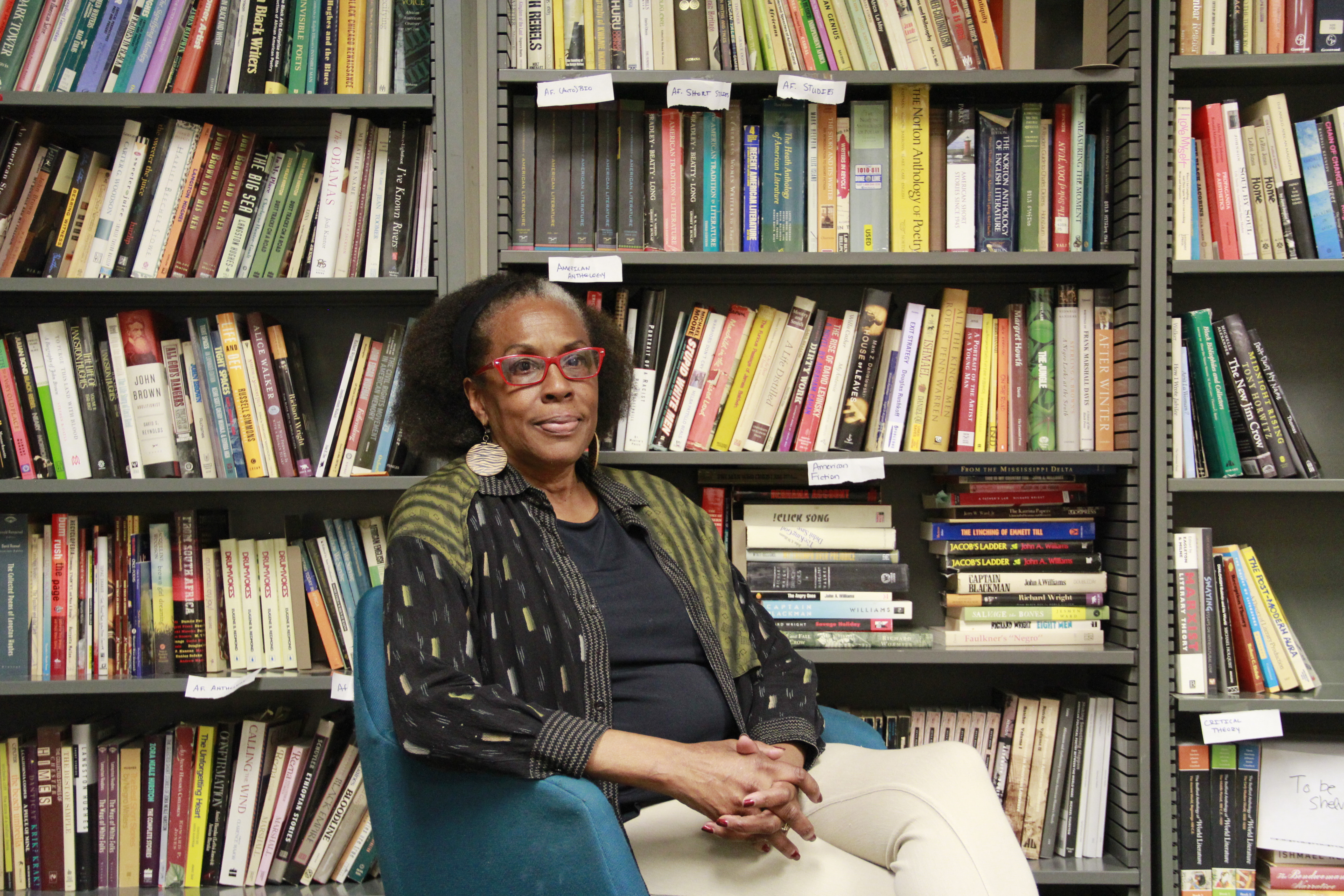KU’s Black Book Interactive Project aims to close African-American literature’s ‘digital divide’ with help from $150,000 grant

photo by: Contributed photo/courtesy of Maryemma Graham
Project for the History of Black Writing staff and affiliates as of 2016, are pictured here from left to right: Anthony Boynton, Maryemma Graham, Wei Wang, Danny Caine, Alysha Griffin, Arnab Chakraborty, Matthew Broussard, Connor Noteboom, Crystal Bradshaw, Jennifer Wilmot, Mona Ahmed, William Cunningham and Hui Meng.
Scholars at the University of Kansas are now one step closer to realizing their goal of making African-American literature accessible to all, thanks to a recent grant from the American Council of Learned Societies.
The digital extension grant, totaling $150,000, will help fund the development of what KU calls “the first searchable digital collection” of previously unavailable and understudied novels by African-American authors. Led by Maryemma Graham, a University Distinguished Professor of English at KU, the Black Book Interactive Project’s new database aims to narrow the gap between the upward trend in digital, data-driven research and scholarship of African-American literature.
With the rise of digitalization, there’s a risk that some works — particularly those that might have been dismissed or ignored by mainstream literary circles in earlier years — could be lost in the shuffle, Graham explains. She says the problem lies partly with the “fragmented” nature of the publishing industry today, where self-publishing, among other changes, has made tracking these works even more difficult.

photo by: Conrad Swanson
Maryemma Graham
“The same kind of exclusion exists in the digital arena that has already existed historically,” says Graham, the project’s principal investigator. “You think the technology allows you to correct some of those oversights, but it just continues them and makes them even worse.”
The Black Book Interactive Project: Extending the Reach is a creation of the much larger, much older Project on the History of Black Writing, which Graham helped establish 35 years ago. The newer project, launched during the 2014-2015 school year, received initial funding from KU and the National Endowment for the Humanities.
With the new ACLS grant, Graham and her colleagues will be able to build a categorization system specific to race and race-related issues, which Graham hopes will help to narrow the digital divide in this kind of scholarship.
Her original Project on the History of Black Writing had a simple goal — bringing together African-American writing “scattered everywhere,” she says, “into one place.” In 1983, that meant collecting books from homes and libraries across the country, ranging from the well-known (think classic authors like James Baldwin, Toni Morrison and Langston Hughes) to the obscure.
“When we’re finished, we’ll probably have over 2,000,” Graham says. “There are some well-known novels in there that everybody knows, but there’s a lot of stuff in there that nobody’s ever heard of.”
One example Graham likes to cite is Iceberg Slim. Slim’s novels were adapted into successful Blaxploitation films in the 1970s and have been cited as major influences by rappers like Ice-T and Ice Cube. Despite this, he’s not exactly a household name, at least not in mainstream literary circles.
But initiatives like the Project on the History of Black Writing and the Black Book Interactive Project are working to change how scholars judge African-American works as important or unimportant, as worth reading or not.
“In 1983, we made a decision that if we were going to be gatekeepers and decide who was important to read and who was not, that we would be repeating the same mistake that had been made historically — which was excluding people,” Graham says, later adding, “Our whole goal is to make the full canon available and let people decide.”
The Black Book Interactive Project plans to bring more partners aboard with help from the new $150,000 grant, including the College Language Association and the Historically Black Colleges and Universities Library Alliance. The project has also partnered with KU’s Institute for Digital Research in the Humanities and the University of Chicago, leading to the conversion of hundreds of physical novels into a searchable archive.
Development of a digital interface by University of Chicago partners is also underway. More information on the Black Book Interactive Project and its parent collection can be found online at hbw.ku.edu.
Correction: This article originally stated incorrectly that Maryemma Graham helped found the Project on the History of Black Writing while a graduate student at the University of Kansas. Graham was a graduate student at the time, teaching at the University of Mississippi, but did not attend KU.







